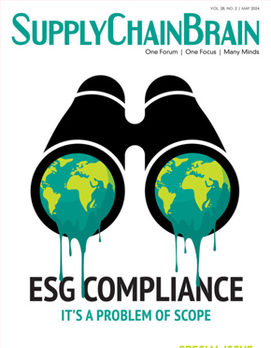
Just look at some of the names that have joined the Blockchain in Transportation Alliance (BiTA) since the group’s formation last August: FedEx, BNSF Railway, C.H. Robinson, Penske, Schneider, Navistar, YRC Worldwide, Salesforce, Werner. As of late February, membership stood at 260 companies, with more than 1,400 applying to join, according to Craig Fuller, founder, managing director and chairman of the board of BiTA.
Fuller, who is also chief executive officer of freight market analytics provider FreightWaves, saw the suitability of a technology that originally was created to support the trading of Bitcoin and other cryptocurrencies. At the outset, BiTA was aimed primarily at the trucking industry, but the initiative was quickly expanded to embrace other partners in the freight business as well, including freight forwarders, customs brokers, non-vessel operating common carriers and logistics service providers.
“There was a perfect storm in terms of interest in the technology and how it would potentially impact the freight industry,” Fuller says. “There were a lot of individual pilots and use cases taking place. Our goal was to bring those parties together and create a dialogue around how to develop standards and a framework.”
Blockchain is a virtual ledger of business transactions that is distributed among the computers of multiple users, thereby making it nearly impossible (in theory) to alter the data record without the permission of all parties. As such, it would seem a natural platform for recording the activities that routinely take place between shippers and carriers.
As it stands today, however, blockchain isn’t a solution that can be instantly embraced by the freight industry. Similar to the internet in its early days, it’s merely a communications framework that has to be modeled to meet users’ specific needs.
For blockchain to become a viable tool for freight, commercial standards need to be put in place. They must be crafted to support particular applications — for example, determining the provenance of freight throughout the supply chain, or enabling the payment of bills.
Whether such standards must be developed for each individual industry remains an open question. In theory, says Fuller, the standard for payment could apply to any sector. “It doesn’t matter whether you’re talking about a shipment of freight or a babysitting service.”
At the same time, the coding must take into account specific uses within the freight industry, such as the creation of “smart contracts” and the often-contentious issue of detention and demurrage. Say that a shipment has been held up by the shipper six hours past its allotted window. A relevant standard within blockchain would define how that errant shipment is penalized, and the carrier compensated.
The problem today is that such determinations are done manually, with the more powerful partner often holding the upper hand. “Large trucking companies can easily collect detention,” Fuller points out, “while small guys can’t.” Standardization would create a process by which the trucker is paid “without having to know anything about the shipper.”
Standards developed for a freight-specific blockchain would be more varied and flexible than the fixed message formats created for electronic data interchange, Fuller says. EDI was born in an age of dial-up modems and achingly slow transactions, and despite its continued widespread use, is not ideally suited for the rapid pace of commerce today.
Unfortunately, that’s also the case with many blockchain transactions. Recording activities on a blockchain can take hours if not days. Fuller blames a system that involves multiple parties and the energy-intensive “mining” of cryptocurrencies through the solving of brutally complex algorithms. Freight transactions, by contrast, typically involve a much smaller number of parties and could be more quickly registered on a blockchain.
At the same time, blockchain isn’t the answer for all freight-oriented activities. EDI, for all its drawbacks, isn’t going away anytime soon. Fuller says blockchain “is a relatively inefficient technology to handle microtransactions.”
Then there’s the issue of cryptocurrencies, which frequently accompany the introduction of blockchain offerings. Many economists believe the recent rash of initial coin offerings (ICOs) constitutes a bubble that inevitably must burst. All of those tokens that are currently flooding the market can’t possibly survive as holders of value.
Fuller says many initiatives are using ICOs to raise money to build blockchain systems, in lieu of access to traditional venture capital. “If you can convince a bunch of transportation neophytes who know nothing about freight that a [crypto] coin can become the currency of the industry, then you can raise whatever,” he says. But most are doomed to eventually fail.
What’s more likely to happen in the long run is that businesses will fall back on traditional currencies and “fiat-based smart contracts” to fund blockchain efforts, Fuller predicts. In fact, he adds, no more than a dozen members of BiTA are involved in an ICO at present.
There’s always the possibility that blockchain could get dragged down by the failure of cryptocurrencies. Organizations such as BiTA are determined not to let that happen. “It’s important that as an association, we help educate people on the way that this technology has a lot of commercial use cases beyond cryptos,” Fuller says.
In any case, he believes, the ultimate failure of cryptocurrencies would only be another chapter in the never-ending economic cycle of “boom and bust.” “What ends up surviving,” he says, “are much stronger entities.”



.jpg?height=100&t=1715228265&width=150)



